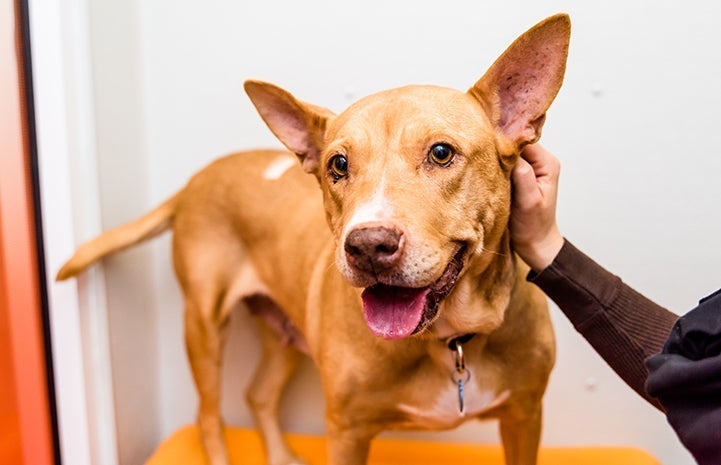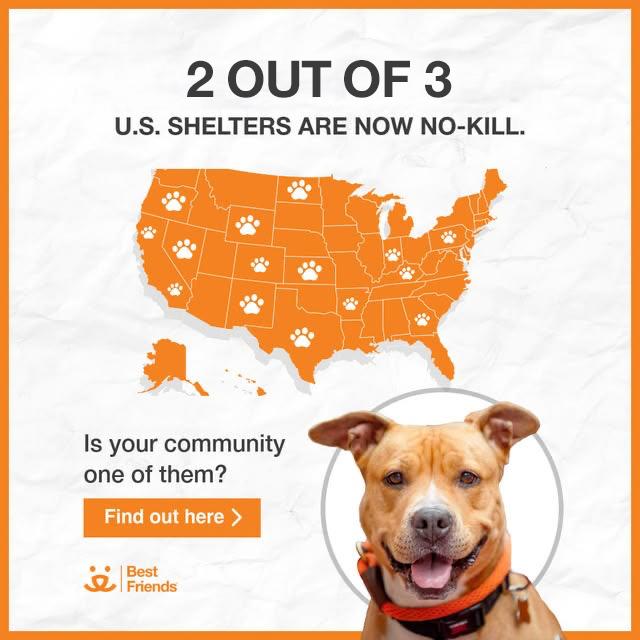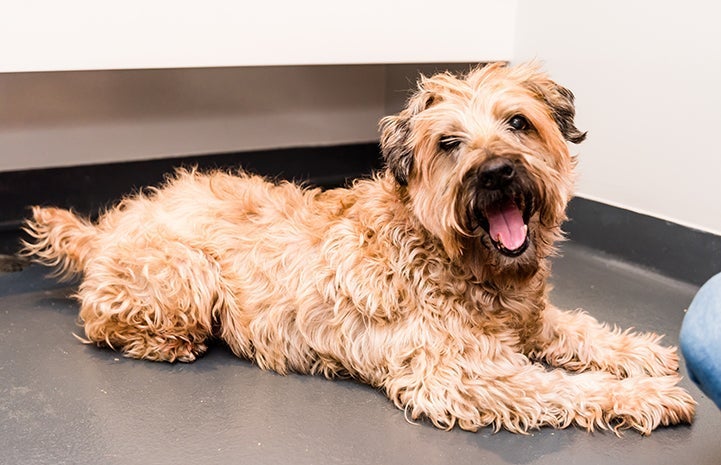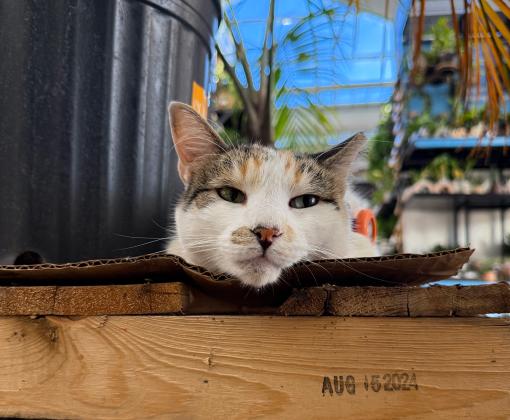
Can't Afford Vet Bills? Here's How to Get Help
Many beloved pets end up in shelters simply because their people have fallen on hard times. It’s not easy to plan for emergency vet bills, rising prices, or a change in life circumstances. If you or someone you know is experiencing financial strain, there are resources available that can help with pet care costs — keeping pets happy, healthy, and at home with the families who love them.
The following is a list of local and national pet financial assistance resources that may be able to help with vet bills, pet food, and more. Keep in mind there might be additional resources near you; try asking for recommendations from your local animal shelter or veterinarian.
The inclusion of the services, organizations, and programs listed below is not an endorsement or recommendation. We encourage you to evaluate them before seeking their support.
Table of contents:
Where to find free pet food and supplies
State programs for help with pet care
Alaska | Arkansas | California | Colorado | Connecticut | Florida | Georgia | Idaho | Illinois | Massachusetts | Michigan | New Jersey | New York | Oregon | Pennsylvania | Rhode Island | Utah | Washington | Washington, D.C. | Wisconsin
Financial resources for specific situations
Dog breeds | Certain illnesses | Assistance dogs | Animal welfare groups
Other possible sources of pet financial assistance
Where to find free pet food and supplies
There are pet food pantries across the country that offer free pet food and supplies. Many local animal shelters and rescue groups have pantries that serve the community. Best Friends offers pet food pantries at its pet resource center in Northwest Arkansas and pet adoption center in Salt Lake City.
Plus, even if your local shelter doesn’t have a pet pantry, it might offer pet items to purchase at deep discounts. Food pantries for people also sometimes have pet items, as well. Some pantries ask to see proof of residency and/or proof of income, so check the requirements before you go.
The following resources can help you locate free pet food and supplies:
- You can search for a pet food pantry near you via pets.findhelp.com. The website also has search options for pet supplies, fence building and repair providers, pet-friendly transportation options, training help, affordable housing, and more.
- Feeding Pets of the Homeless is a national organization that helps people locate pet food pantries, pet-friendly shelters, free basic veterinary care and emergency care, and other items and services.
- Alley Cat Rescue keeps a list of pet food banks by state.
- On Feeding America’s website, you can search for a food bank near you. Be sure to call ahead to see whether they have pet items.

Finding help with vet bills
If your pet needs a medical procedure that you can’t afford, there are options to find free or low-cost vet care. Try contacting as many sources of financial aid as possible. If one alone can’t cover the cost of your vet bill, multiple sources might be able to. If possible, contact them prior to the medical procedure; financial-aid sources are sometimes less likely to pay bills for care that has already been provided.
Also, try negotiating with your veterinary clinic for a better price or the ability to finance the cost of care over time. And consider getting a second opinion and price comparisons from other clinics. Another veterinarian might have a more cost-effective way to resolve your pet’s issue.
These national resources provide financial assistance for pet care:
- CareCredit provides financing for veterinary care; check its website to see whether you qualify.
- Similar to CareCredit, Scratch provides payment plans for pet care.
- RedRover works to bring animals from crisis to care and to strengthen the bond between people and animals. It offers funding for emergency vet care, assistance for pets during natural disasters and other emergencies, help for pets of domestic violence survivors, and more.
- The Pet Fund provides financial assistance to people with pets who need non-basic, non-urgent veterinary care. They also provide information about preventive care, pet insurance programs, and financial services to help prevent future emergencies.
- Paws 4 A Cure provides pet financial assistance for veterinary care throughout the United States. It helps dogs and cats with all illnesses and injuries.
- The Pet Lifeline Program provides pet financial assistance to people who need help to cover their veterinary bills. The program is exclusively for non-basic, non-urgent care.
- Brown Dog Foundation provides financial assistance to help offset the cost of veterinary emergencies and treatment of chronic conditions.
- The American Veterinary Medical Association can help you locate accredited vet schools, which sometimes treat pets at a reduced cost.
- GoFundMe allows people to start animal fundraisers for pets in need.
- Furlanthropy is another crowdfunding site where people can raise money for pet care.
- Pet insurance can help offset the cost of veterinary care.
State programs for help with pet care
Alaska
- Friends of Pets has a fund for emergency vet care and offers low-cost spay/neuter surgeries for Alaska residents.
- Save Our Seward (SOS) Pets offers vouchers for spay/neuter surgeries, collects pet food donations for the local food bank, and offers low-cost pet microchips.
Arkansas
- For Pets’ Sake provides financial assistance for spay/neuter surgeries, vaccinations, and other care. It also provides temporary pet foster care for people experiencing homelessness, hospitalizations, domestic abuse, or other crises, and it runs a pet food pantry.

California
- Actors and Others for Animals serves people with pets in Southern California. Among other services, the organization provides financial assistance for emergency veterinary procedures.
- The Four-Legged Fund offers zero-interest, zero-fee loans up to $5,000 to help people in Los Angeles, Ventura, or Santa Barbara County cover their pets’ veterinary costs for routine care, preventative treatments, and emergencies.
- Mercy Crusade in Oxnard offers low-cost veterinary services, including spay/neuter and vaccinations.
- Pet Orphans of Southern California has a low-cost veterinary clinic.
- Voice for the Animals’ Helping Friends program provides pet-care support for older adults, people with disabilities or illnesses, and people with low income.
- Animal Assistance League of Orange County offers financial support for veterinary care for older adults, people with disabilities, and people who meet income requirements; recipients must live in Orange County.
- Pets Are Wonderful Support (PAWS) in San Francisco provides financial assistance, pet food and supplies, and other support for pets of older adults and people with disabilities or illnesses.
- Helen Woodward Animal Center’s AniMeals program offers free pet food for people with low income, older adults, people with disabilities or illnesses, and people who are unhoused.
- The California Department of Social Services’ Assistance Dog Special Allowance provides a monthly payment to eligible California residents who use a guide, signal, or service dog. The allowance is to help pay for food, grooming, and veterinary care for the dogs.
Colorado
- Humane Society of the Boulder Valley provides “safety net services,” including temporary pet housing, pet food and supplies, discounted pet behavior services, and grants for veterinary care.
- Harley’s Hope Foundation provides financial assistance for major, emergency, and specialty veterinary care; financial assistance for behavioral training; short-term care for pets of people with medical issues; and other services.

See how your community is doing
Connecticut
- Connecticut Humane Society offers low-cost veterinary care for non-emergency cases, as well as a pet food pantry.
Florida
- Pet Alliance of Greater Orlando has a pet food pantry and offers low-cost veterinary care to the community.
Georgia
- Pets Are Loving Support (PALS) Atlanta provides free food, basic veterinary care, and support to the pets of seniors, people who are ill or have a disability, and veterans.
Idaho
- Idaho Humane Society operates a nonprofit veterinary hospital and provides a variety of low-cost services to the community.
Illinois
- Anti-Cruelty Society offers low-cost spay/neuter and wellness care.
- Paws for a Cause has a program that provides subsidized care for veterinary services, as well as low-cost spay/neuter, dental care, and wellness services.
- Blessed Bonds provides low-cost spay/neuter, wellness exams, and vaccinations, along with assistance for people with pets in times of crisis.
Massachusetts
- MSPCA-Angell has a pet care financial assistance program.
Michigan
- Michigan Humane operates a pet food pantry and offers low-cost veterinary services for the community.

New Jersey
- PetPALS of Southern New Jersey provides services to pets of people who have terminal, chronic, or debilitating health conditions, as well as seniors with financial needs.
New York
- All 4 Pets West New York provides grants for veterinary care for pets whose people are not able to pay due to low income, personal crisis, or disaster.
- Humane Society of Greater Rochester has a pet food pantry and provides some low-cost veterinary services for the community.
Oregon
- Velvet Assistance Fund, a program at DoveLewis Animal Hospital, provides financial support for emergency vet care for pets of people with low income.
- Pro-Bone-O in Lane County provides free veterinary services, pet food, and supplies for the pets of people who are unhoused.
Pennsylvania
- Humane Animal Rescue of Pittsburgh offers low-cost vet services, including preventative care and spay/neuter.
- Centre County PAWS has a fund for medical costs of pets.
Rhode Island
- Volunteer Services for Animals is an organization of volunteers dedicated to helping pets through education, advocacy, and assistance. It provides financial assistance to people for veterinary care, including spay/neuter and emergency services.
- Rhode Island Veterinary Medical Association’s Companion Animal Foundation provides financial assistance to help cover the cost of veterinary care.
Utah
- Pet Samaritan Fund provides financial assistance to people who need help with veterinary care for their pets, including spay/neuter services.
Washington
- Concern for Animals provides financial assistance for spay/neuter and emergency vet care, offers services for pets of older adults, and has a pet food bank.
- Seattle Humane provides income-based veterinary care, has funds for people who need help caring for their pets, and has a pet food pantry.
Washington, D.C.
- Humane Rescue Alliance provides low-cost veterinary care and low-cost or free spay/neuter for pets of people who meet income requirements, and it has a pet food pantry.
Wisconsin
- Wisconsin Humane Society provides veterinary care at a reduced cost for people with low income and has a pet food pantry.

Financial resources for specific situations
Some organizations focus on offering assistance for specific types of pets or pets with certain challenges. They include:
- Dog breeds: If you have a specific dog breed, contact the national club for that breed. In some cases, these clubs offer a veterinary financial assistance fund. To find the national club for your breed, try searching online using the following criteria: “breed + national club” (for example: “standard poodle + national club”). Some groups that provide financial assistance for specific dog breeds include: CorgiAid, Doberman911, Keeshond Sunshine Rescue Foundation, Pit Bull Rescue Central, and WestieMed.
- Certain illnesses: Some organizations help pets with specific medical conditions. For instance, the Live Like Roo Foundation offers grants, care packages, special experiences, and more to help pets diagnosed with cancer. Frankie’s Friends is another nonprofit offering financial assistance for pets with medical conditions that require specialized care, as well as pets who need emergency care.
- Assistance dogs: The International Association of Assistance Dog Partners (IAADP) has an emergency veterinary fund to provide financial aid to U.S. IAADP partner members whose assistance dogs require veterinary care beyond their ability to pay.
- Animal welfare groups: Second Chance Grants from American Humane Society financially assist animal shelters and rescue groups to help offset costs of caring for rescued animals who were abused or neglected.
Other possible sources of pet financial assistance
With a little time and creativity, there are countless other ways to raise funds for a pet in need. Here are a few ideas:
- Create a Facebook page to get the word out online about your pet’s needs. Ask friends and family to share it to reach a wider network of people who might help.
- Decorate a few donation cans with an appealing photo of your pet and a brief explanation that money is needed for their care. (This might sound old-fashioned, but it really works.) Ask your veterinarian whether you can put one in their office. Put one out on your desk at work, and ask friends and family to do the same.
- Hold a yard sale fundraiser. Ask friends and family to contribute items. And publicize the event in the local newspaper and local social media groups, as well as by posting flyers around town. Mentioning that funds will go toward your pet’s care can spark people’s interest. You’ll need a place to store the items, and there is some time involved in organizing. But a single yard sale can raise several hundred dollars.
- If baked goods are more your thing, hold a bake sale fundraiser. Ask friends and family to contribute baked items, and hold your bake sale in a high-traffic area where many people will pass by. Put out photos of your pet to help draw people in.
- If your housing situation has changed, you can find pet-friendly rentals across the United States via Rentable. If you are facing foreclosure, see this resource about foreclosure from American Humane Society.

Financial strain is never easy, but please know that you aren’t alone. There are many people working to keep pets and their people together by lending a helping hand.
If you know of a local resource near you that we haven’t listed, please let us know at editor@bestfriends.org, and make sure that “resource” is in the subject line of your email.
